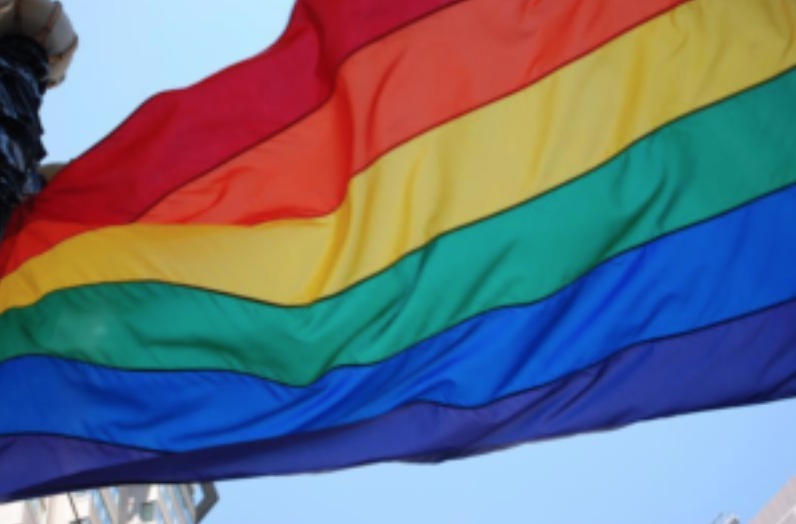Suppose you have been working for a company for many years. You have been an exceptional employee and have never had any problems with your employer or coworkers. However, one day your boss discovers that you are currently involved in a same-sex relationship and the next day you are fired. While many agree this is morally reprehensible, the question of whether that practice is illegal is a bit more complicated.
For decades, the federal and state governments of the United States have attempted to protect workers from discrimination in the workplace. Perhaps the most important piece of legislation that has been passed in this regard is Title VII of the Civil Rights Act of 1964. This Act, among other provisions, prevents covered employers, state employers or private business with fifteen or more employees, from engaging in discrimination based on race, sex, national origin, color, religion, etc.[1] Since its implementation, Title VII has been used in numerous cases to protect minority employees from retaliatory practices and has encouraged employers to be more inclusive and diverse in their workplaces. And since its initial ratification, the Act has been amended to include protections for other groups, such as the handicapped and pregnant women. However, the new question that is now plaguing the courts is whether protection from discrimination regarding sexual orientation is included under Title VII.
Over the past few years, numerous cases involving gay rights and discrimination have reached the courts. From the now famous marriage equality case to the controversy over religious freedom laws, the issue of gay rights has become more and more prevalent in society. Currently, the Second Circuit is contending with the case of Mr. Donald Zarda, a former employee of a company called Altitude Express who was fired after he told a customer that he was gay.[2] Mr. Zarda then sued Altitude Express for violating Title VII and lost in the lower courts and has now appealed the decision.[3] While the Equal Employment Opportunity Commission (EEOC) declared in 2015 that Title VII does protect against discrimination based on sexual orientation, the Trump Administration and the Department of Justice (DOJ) under Attorney General Jeff Sessions have come to a different conclusion.[4] In a brief filed with the Second Circuit court, the DOJ stated that Title VII, as it currently stands, does not protect against such discrimination because Congress has refused to ratify any such amendments to Title VII that would bar such discrimination.[5] The brief goes on to explain that such practices do not violate Title VII because “they do not discriminate between members of one sex and ‘similarly situated’ members of the opposite sex.”[6] The brief then goes on to state that “[a]ny efforts to amend Title VII’s scope should be directed to Congress rather than the courts.”[7]
While this brief is not law, it does raise questions about how LGBTQ rights and protections will fare under the Trump Administration. While this brief is not law, it does go against the stance the Obama Administration took on this issue and combined with the recent transgender ban controversy, the implications of these actions is troubling.[8] Overall, at the very least the brief illustrates that the federal government will most likely not advocate for broader protections for the LGBTQ community. However, it is likely that this particular issue will ultimately be resolved by the Supreme Court. Currently, the circuits are split on how Title VII operates in regards to sexual orientation, with some courts and judges, such as in the Seventh and Second Circuits, finding that Title VII does protect against such discrimination[9] and others have ruled the exact opposite.[10] While the Sixth Circuit, the circuit Kentucky is in, has currently not ruled on the issue, because of this disparity amongst the courts, it seems more and more likely that such a case will find its way to the Supreme Court to be resolved once and for all.
If, however, you feel as if you have been discriminated against in the workplace, either because of your sexual orientation or for another characteristic however, you should seek the assistance of legal counsel immediately to discuss the legal remedies available to you.
[1] See Title VII of the Civil Rights Act of 1964, U.S. Equal Employment Opportunity Commission, https://www.eeoc.gov/laws/statutes/titlevii.cfm (last checked Aug. 8, 2017).
[2] Alan Feuer, Justice Department Says Rights Law Doesn’t Protect Gays, N.Y. Times (July 27, 2017), https://www.nytimes.com/2017/07/27/nyregion/justice-department-gays-workplace.html.
[3] Id.
[4] Id.
[5] Id.
[6] To read the brief in full, see Justice Department Brief on Gay Rights, N.Y. Times (July 27, 2017), https://www.nytimes.com/interactive/2017/07/27/nyregion/gay-rights-justice-department.html
[7] Id.
[8] See Feuer, supra note 2.
[9] See Mark Joseph Stern, A Thunderbolt From the 7th Circuit, Slate (Apr. 5, 2017), http://www.slate.com/articles/news_and_politics/jurisprudence/2017/04/the_7th_circuit_rules_that_anti_gay_employment_discrimination_is_illegal.html; Mark Joseph Stern, 2nd Circuit Chief Judge: Anti-Gay Employment Discrimination Is Already Illegal Nationwide, Slate (Mar. 27, 2017), http://www.slate.com/blogs/outward/2017/03/27/judge_robert_katzmann_suggests_title_vii_covers_anti_gay_employment_discrimination.html
[10] Mark Joseph Stern, 11th Circuit Rules Title VII Does Not Prohibit Anti-Gay Discrimination in Deeply Confused Opinion, Slate (Mar. 10, 2017), http://www.slate.com/blogs/outward/2017/03/10/_11th_circuit_rules_title_vii_does_not_prohibit_anti_gay_discrimination.html


